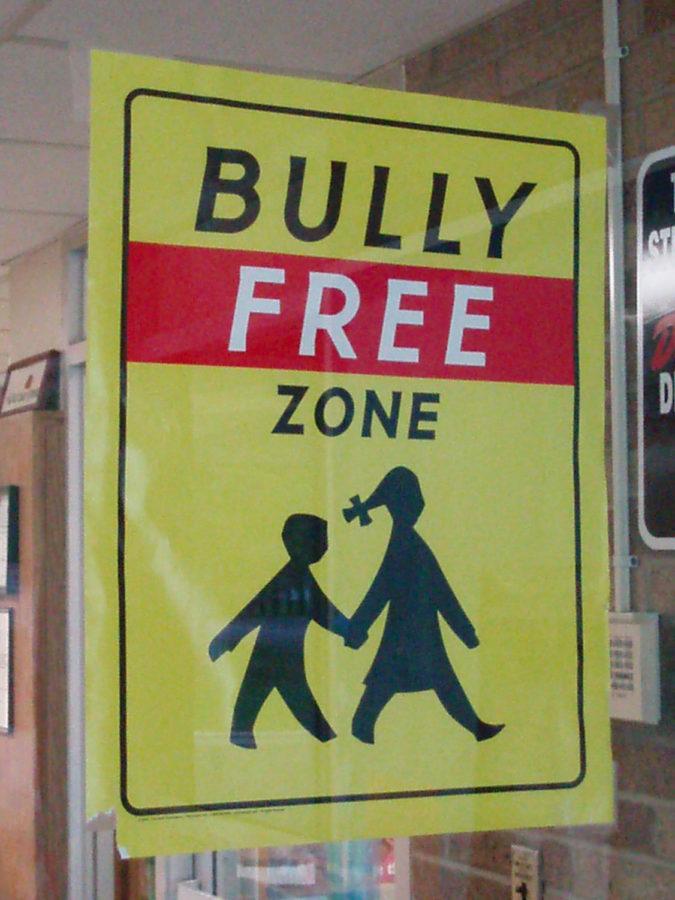McLaughlin: Bullying bill takes student activity monitoring too far
Bullying
March 27, 2014
Iowa’s Senate recently passed an anti-bullying bill to strengthen the current state laws against bullying. Going to the floor March 18, Senate File 2318 met with some resistance, with the vote splitting into a 26-19 final tally.
The votes were sharply divided along party lines with all the Democratic senators voting for the bill and all votes against the bill coming from the Republican side of the Senate. The bill, which caused heated debate on the floor, was opposed strongly by the Republican Party for a number of reasons.
Republicans offered the Senate an amendment, stating that the bill was not open ended enough to cover all possibilities of bullying. Republicans also had problems with the bill in that it lacked the inclusion of parents. Issue was also taken with the possibility of creating a new agency inside the Department of Education and the proposed appropriations of $750,000 towards school programs to create safer learning environments.
Bullying is a big problem. Not only in Iowa, but in our entire country. There is no denying this, and it is shown in spades by strong support from Republican Governor Terry Branstad and bipartisan support elsewhere. However, the Senate Republicans have some valid points with the new bill. The first of these being that the bill and law is specific on who can be covered by the law. The amount of groups that are listed covers a vast range of people, but why wouldn’t the law simply cover every person and any reason to incite bullying or harassment?
“Bullying is bullying regardless of who you are. We should be protecting all kids in Iowa, not just 18 enumerated characteristics … All Iowans deserve to be protected,” said State Senator Jake Chapman, R-Adel.
After all, that is what the law is in place for — protection. It does not expressly state that every Iowan citizen is safe from harassment. Surely, what is listed in the law is not intended to exclude others who may need help. The problem is that it potentially leaves open a loophole. It would simply be safer to reword the measure.
Another big point is regarding the power the bill would give to the schools when it comes to dealing with bullying, especially cyberbullying. The bill allows for school officials to deal with bullying which happens outside of school, including what happens on the internet. This gives school officials the right to monitor kids’ social media and other electronics and punish them for how they use social media even when they are outside school.
This is a direct violation to the students First Amendment rights. Students forfeit parts of their First Amendment protections when they attend school during weekdays, but does that really mean they should continuously lose that right when the final bell rings for the day? Kids should have their own personal place to escape to, not have to act like they are in a classroom no matter where they are.
We are all against bullying. That does not mean we need to curtail students’ rights to put what they want on the internet or say what they want when texting friends. If a child is being bullied, cyber-bullied and so on, then they should do what every person has been taught when going through grade school. They should find an adult they trust and get help to confront the problem. More than likely if a kid is being cyber-bullied he or she is probably getting harassed at school too. That is where school programs against bullying come in.
When we give government officials such as teachers and principals the ability to take matters into their own hands, even when the action that they are punishing happens outside of their jurisdiction, we go too far. If it happens outside of the school then it is, by definition, not the place of school officials to deal with the problem in an official capacity. Our government should trust the children’s parents to properly handle situations regarding bullying outside of school.







